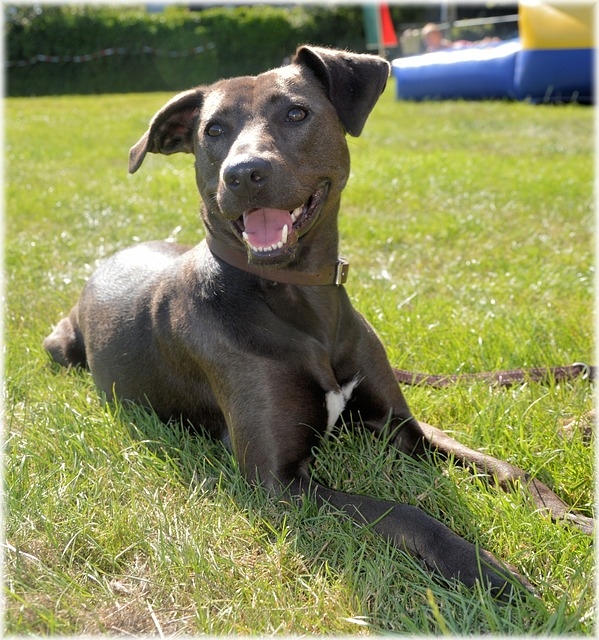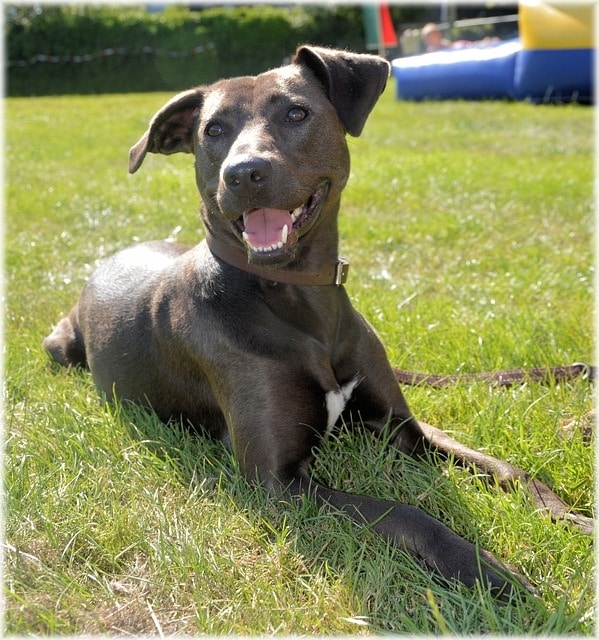
Las Vegas Plastic Surgery
May 19-25 is National Dog Bite Prevention Week
Dogs are loyal companions who provide a constant source of enjoyment and amusement to their owners. Even though dogs are still commonly referred to as “man’s best friend,” they are animals and at times they can and do attack humans. Plastic Surgeons are often called upon to repair and restore dog bites to the face, hands and other parts of the body. This week is National Dog Bite Prevention week and as a Plastic Surgeon I’d like to share some basic facts and information about preventing dog bites.
There are a number of things that you can do to avoid dog bites, ranging from properly training and socializing your pet to educating your children on how, or if, they should approach a dog. Let’s start with some basic facts aboout dog bites.
• 4.7 million people in the U.S. are bitten by dogs every year
• Children are by far the most common victims
• 800,000 Americans receive medical attention for dog bites each year
• Children are far more likely to be severely injured; approximately 400,000 receive medical attention every year
• Most dog bites affecting young children occur during everyday activities and while interacting with familiar dogs
• Senior citizens are the second most common dog bite victims
Why Dogs Bite
Big or small, male or female, young or old, any dog can bite. Even the cuddliest, fuzziest, sweetest pet can bite if provoked.
Dogs bite usually as a reaction to something. If the dog finds itself in a stressful situation, it may bite to defend itself or its territory. If they are scared, startled, threatened, or protecting something that is valuable to them, (food, a toy, their puppies), they may also be reactive and bite.
Dogs may bite because they aren’t feeling well, and might simply want to be left alone.
Dogs might nip and bite during play. Even though nipping during play might be fun for the dog, it can be dangerous for people. It’s a good idea to avoid wrestling or playing tug-of-war with your dog. These types of activities can make your dog overly excited, which may lead to a nip or a bite.
Socialization is a good way to help prevent your dog from biting. Socializing your pet helps your dog feel at ease in different situations. By introducing your dog to people and other animals while it’s a puppy, it feels more comfortable in different situations as it gets older. It’s also important to use a leash in public to make sure that you are able to control your dog.
Educating yourself and the children you know on how, or if, they should approach a dog is very important when it comes to preventing dog bites. Information is one of the best ways to prevent dog bites.
How to Prevent a Bite: When to Avoid Petting a Dog
We love to pet dogs, and most dogs love to be petted. But there also are times when we shouldn’t pet a dog. Here’s a list of when you should avoid petting a dog, whether the dog is yours or belong to someone else:
• If the dog is not with its owner.
• If the dog is with its owner but the owner does not give permission to pet the dog.
• If the dog is on the other side of a fence, don’t reach through or over a fence to pet the dog.
• If a dog is sleeping or eating.
• If a dog is sick or injured.
• If a dog is resting with her puppies or seems very protective of her puppies and anxious about your presence.
• If a dog is playing with a toy.
• If the dog is a service dog. Service dogs are working animals and shouldn’t be distracted while they are doing their jobs.
• If the dog is growling or barking.
• If the dog appears to be hiding or seeking time alone in its special place.
Dog Bite Prevention: Interaction with Dogs
First, like most accidents, dog bites tend to happen in the home or neighborhood. One common mistake people make is they believe that dogs they’ve seen or interacted with before will always interact with them in the same way, and that simply isn’t true. Just because you’ve had a positive interaction with a dog before doesn’t mean it’s guaranteed to happen that way again. Remain alert to risks in dogs, even those you think you know.
When meeting a dog, stay still, don’t run from a dog. Offer the back of your hand and see wither it is comfortable approaching and sniffing. Interactions initiated by the dog may be are safer because the dog is coming to you and wants to interact. Be guided by the owner who knows their dogs the best. Ask if you can pet or play with the dog. Take an ambivalent response by the owner as a “no” (as some owners may be reluctant to admit their dog can be aggressive).
Stay calm around dogs. Don’t yell or run.
Don’t tease, prod, poke, chase, tease, or try and “ride” the dog. Don’t pull on dog’s ears or tail.
Don’t get between two fighting dogs.
Disengage and move away when any dog who is being fearful or aggressive. Don’t make any sudden movements or loud or high-pitched sounds because these may activate the dog’s predator instinct and escalate its behavior. Move away slowly, confidently, and calmly, and break eye contact with the dog.
You could be confronted with a dog that’s off-leash. Move away calmly and, if the dog is displaying aggressive behaviors, contact authorities immediately and report the dog’s location and appearance. Avoid engaging with the dog, and caution others, (particularly children,) to remain calm and avoid engaging with the dog.
If a dog is coming toward after you, don’t run. Stand still, “make like a tree”. If knocked to the ground curl up in a ball and protect your face and neck.
If you’re a dog owner, buy a leash that is sturdy and easy to see. Keep your dog healthy.
What To Do If a Dog Bites You
If you are bitten by a dog, here is a checklist of things you should do:
• If the dog’s owner is present, request proof of rabies vaccination, and get the owner’s name and contact information.
• Clean the bite wound with soap and water as soon as possible.
• Consult your doctor immediately or go to the emergency room if it’s after office hours.
• Contact the dog’s veterinarian to check vaccination records.
What to Do If Your Dog Bites Someone:
Dog bites are scary for everyone involved – the person who has been bitten, the dog owner and even the dog. If your dog happens to bite someone, remember that you are responsible to help the person who has been bitten and to remove your dog from the situation. What should you do if the unfortunate happens?
• Restrain your dog immediately.
• Separate your dog from the scene of the bite.
• Try to confine your dog in a safe place.
• Check on the bite victim’s condition.
• Make sure that the wounds are washed with soap and water.
• Encourage the bite victim to seek professional medical advice to check on the seriousness of the wound and the risk of rabies or other infections.
• Call 911 if a response by paramedics is needed.
• Provide important information.
• Give the bite victim – or others who are with the person at the time of the incident – your name, address and phone number, as well as information about your dog’s most recent rabies vaccination.
• Obey local rules and laws regarding reporting of dog bites.
• Talk to your veterinarian for advice about dog behavior that will help prevent similar incidents in the future.
The American Veterinary Medical Association has excellent resourses. Education and awareness about dog bites is key so that children can interact with doggies and lower their risk of getting hurt.
Jeffrey J. Roth, M.D., F.A.C.S.
(702) 450-0777www.jjrothmd.com
References:
American Veterinary Medical Association Dog Bite Prevention
KHOU.com



